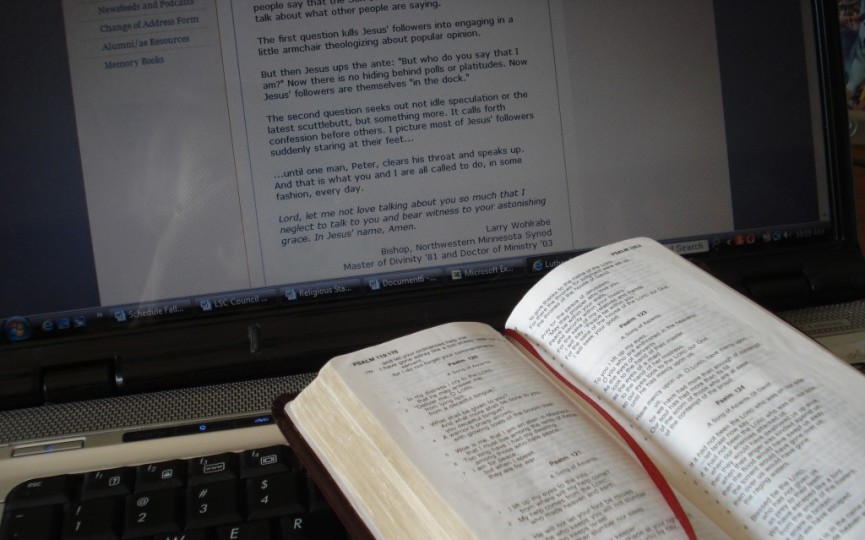Matthew 11:20-22 NASB [20] Then He began to denounce the cities in which most of His miracles were done, because they did not repent. [21] “Woe to you, Chorazin! Woe to you, Bethsaida! For if the miracles had occurred in Tyre and Sidon which occurred in you, they would have repented long ago in sackcloth and ashes. [22] Nevertheless I say to you, it will be more tolerable for Tyre and Sidon in the day of judgment than for you. …
Mark 8:22-26 NASB [22] And they came to Bethsaida. And they brought a blind man to Jesus and implored Him to touch him. [23] Taking the blind man by the hand, He brought him out of the village; and after spitting on his eyes and laying His hands on him, He asked him, “Do you see anything?” [24] And he looked up and said, “I see men, for I see them like trees, walking around.” [25] Then again He laid His hands on his eyes; and he looked intently and was restored, and began to see everything clearly. [26] And He sent him to his home, saying, “Do not even enter the village.” …
When Jesus denounced the cities in Matthew 11 verse 20, He says that these were the cities where most of His miracles were done. Bethsaida was one of those cities, and it is interesting to note, that in the Mark story of the blind man being healed, it happened in Bethsaida. This is the only occurrence that we have of Jesus having to pray for someone more than once to be fully healed. Notice in the Mark passage, that when they brought the blind man to Jesus He took Him out of the village, and after his healing, Jesus sent him home, telling him to not even go back into the village. It is obvious, that there is something wrong with Bethsaida. Jesus had to get this man out of the spiritual culture of that city for him to be healed, and He also wanted the man to stay out of Bethsaida after he had been healed. You would think that in light of the fact that Jesus had performed so many miracles there, that Bethsaida would be pulsating with holy anticipation of what God might do next in their midst, but instead of that, there was obviously a culture of unbelief and indifference to the point that no more great miracles were going to be performed there.
There’s a lot to be digested in these stories, but one thing is certain; stewarding well God’s favor impacts how much favor we will know in the future. For a season, God’s favor was being poured out dramatically through Jesus in Bethsaida, but they obviously did not steward it well. Therefore a spiritual culture had developed where hearts were hardened, and the Holy Spirit was not free to manifest the kingdom of God. One of the ways that we mishandle God’s favor, is through passivity and ingratitude. The Psalms tell us that God inhabits the praises of His people, and that tells me that in the context of gratefulness, God’s presence and favor is fully manifested. I’m convinced that an attitude of thanksgiving for the favor of God, in whatever form that favor comes, sows into the next season more favor. I am also convinced that a lack of childlike thankfulness and celebration for favor quenches the “more” that the Holy Spirit wants to manifest.

